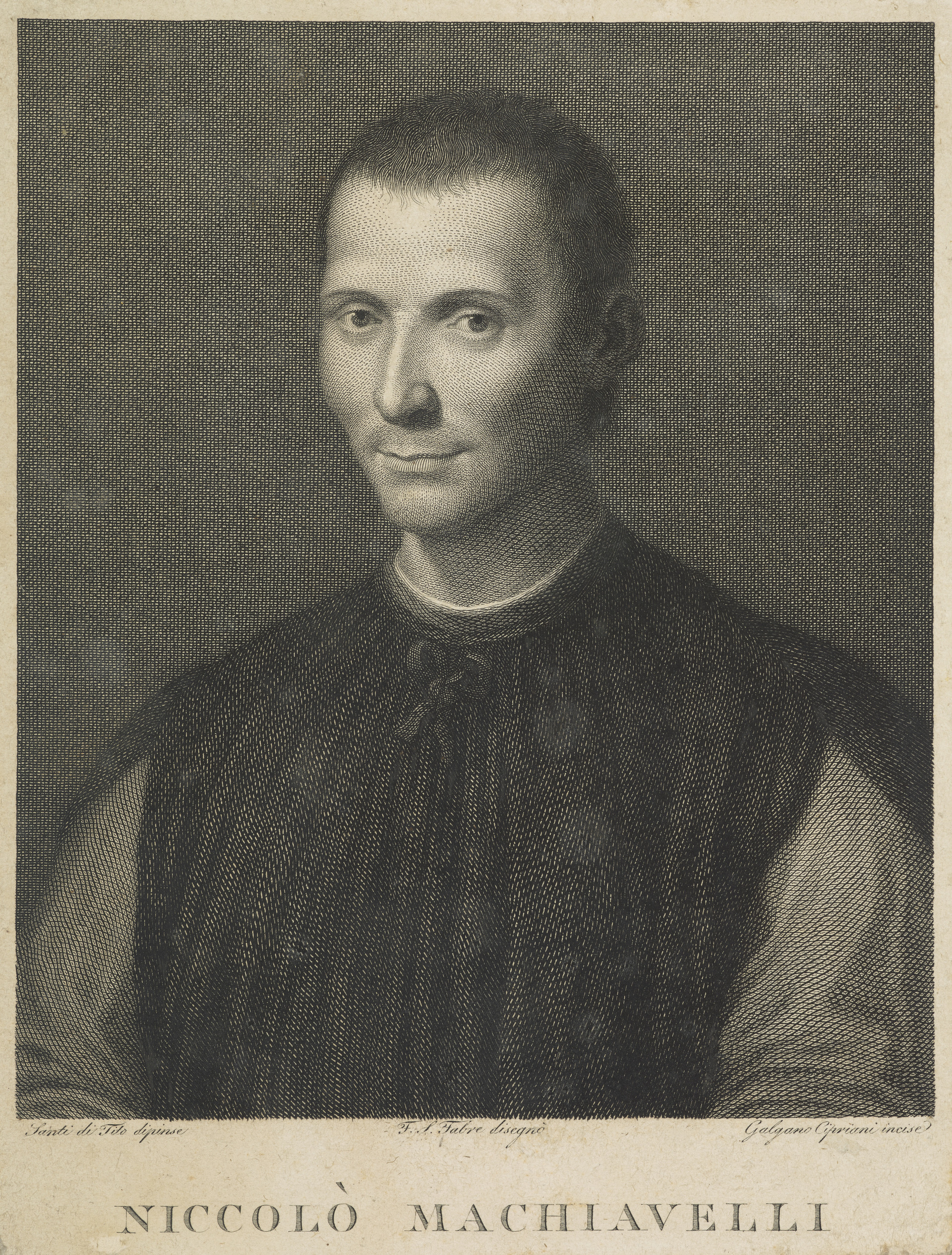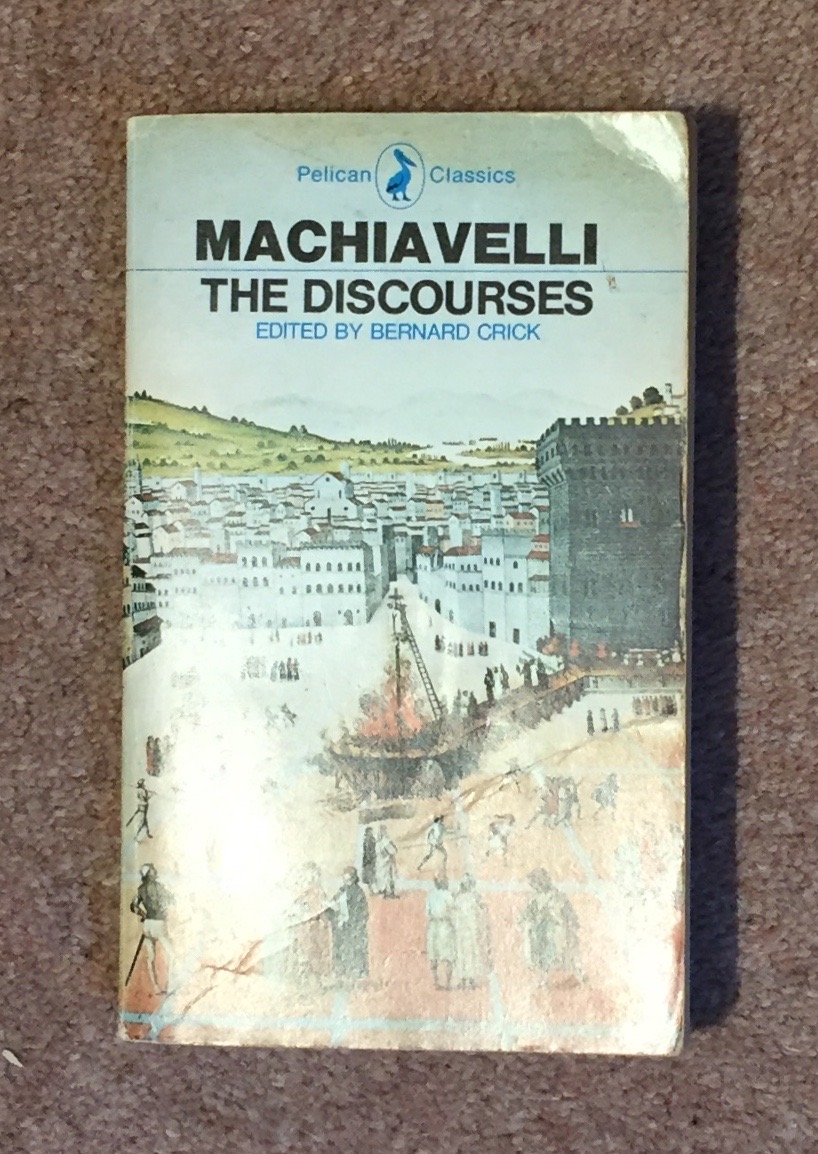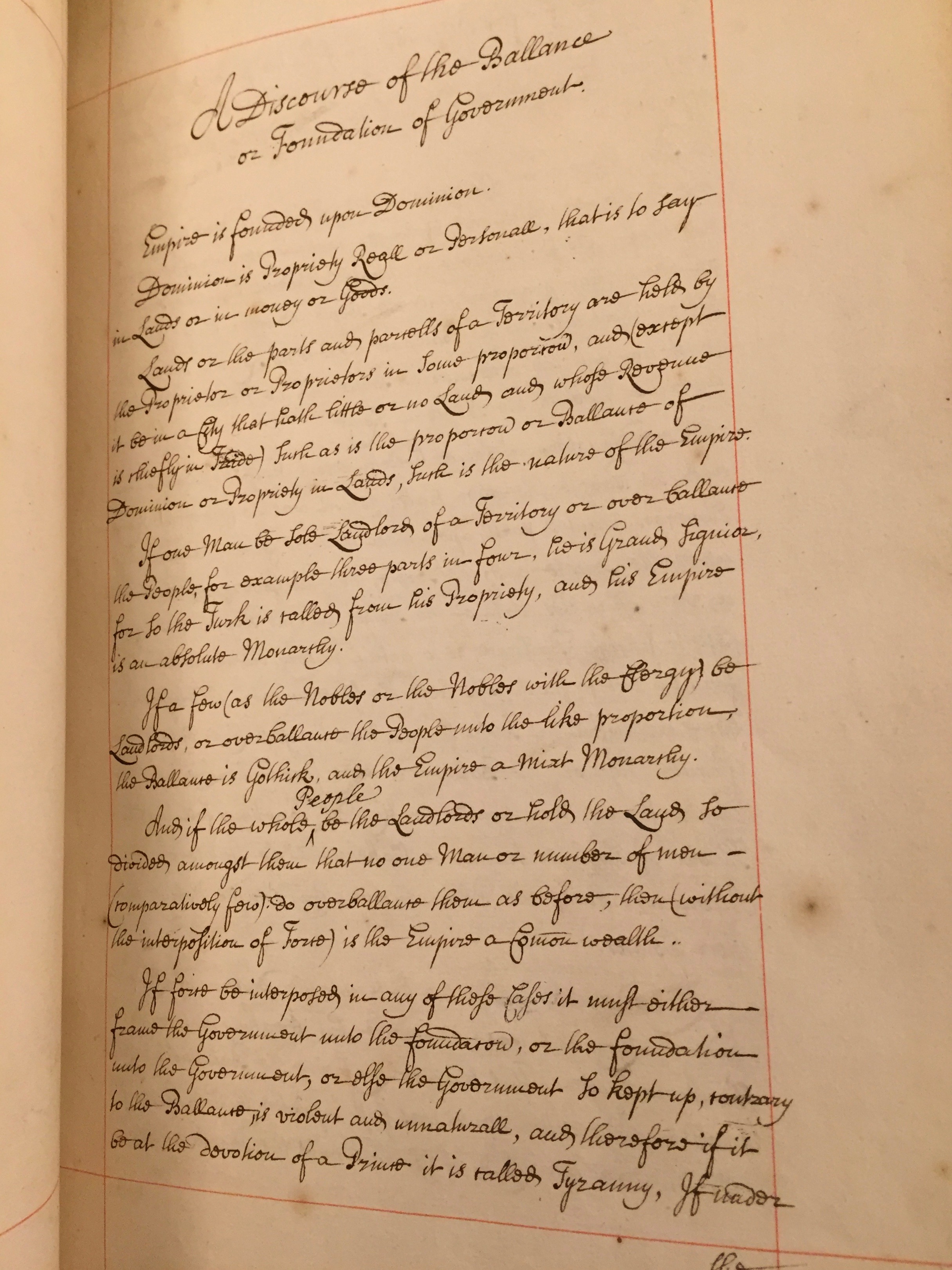In January I submitted the final version of my intellectual biography of James Harrington to Oxford University Press. With any luck it will appear before the end of 2019. Consequently, at the start of this new year I have been reflecting on my pursuit of this project and what I have learned from it. One of the particular pleasures of the research has been re-reading not just Harrington's own writings, but also the works of those thinkers who influenced him. This is, then, the first of a series of posts on some of the thinkers who inspired Oceana. Where better to begin than with the great, though controversial, Italian Renaissance political theorist, Niccolò Machiavelli.
Galgano Cipriani, Niccolo Machiavelli, 1469-1527 Statesman and historiographer, National Galleries Scotland, Accession Number FP I 81.1 https://www.nationalgalleries.org/art-and-artists/34757/niccolo-machiavelli-1469-1527-statesman-and-historiographer
Various things struck me as I re-read The Discourses after an interval of more than a decade. One of the first was how beautifully Machiavelli wrote. From the dedication I was immediately drawn into the text and looked forward to reading it. Part of the beauty lies in the fact that he is clear about his arguments, stating them openly even when they are controversial. But there is much in the substance, as well as the style, of Machiavelli's works that I found appealing. I want to highlight three aspects of his work here that certainly influenced Harrington and which, I believe, still have relevance today.
In the first place, Machiavelli - like Harrington - is explicit about the benefits of reading history to better understand present politics and make proposals for the future. Machiavelli laments the fact that in his own time people take pleasure in reading about historical events, but do not seem to learn from or imitate them (Niccolò Machiavelli, The Discourses, ed. Bernard Crick, Harmondsworth, Penguin, 1970, p. 98). One purpose of his book is to encourage a new attitude to history, he aims to compare ancient and modern events so as to better understand them 'so that those who read what I have to say may the more easily draw those practical lessons which one should seek to obtain from the study of history' (Machiavelli, The Discourses, p. 99). Machiavelli's historical methodology is vulnerable to criticism on account of his sense that the past and the present are fundamentally the same. It is obviously not appropriate to maintain this view today, and Harrington already went some way beyond Machiavelli in appreciating the nature and importance of change over time. But it would, I think, be wrong to dismiss too quickly Machiavelli's assertion that human nature remains much the same in all times and places:
If the present be compared with the remote past, it is easily seen that in all cities and in all peoples there are the same desires and the same passions as there always were. So that, if one examines with diligence the past, it is easy to foresee the future of any commonwealth, and to apply those remedies which were used of old; or if one does not find that remedies were used, to devise new ones owing to the similarity between events. (Machiavelli, The Discourses, pp. 207-8).
It is, Machiavelli concludes, because people do not properly know or understand history that the same problems keep arising.
The author’s copy of the penguin edition of Machiavelli’s Discourses.
One aspect of Machiavelli's understanding of his own past and present which might be of particular interest to us today is what he has to say about popular or democratic politics. As I have pointed out elsewhere, modern democracy is often assumed to be a twentieth-century phenomenon, or at least one that had its origins no earlier than the revolutions of the late eighteenth century. Yet, important discussions on the nature and limitations of democracy took place in seventeenth-century England. Reading Machiavelli reminded me that even seventeenth-century thinkers were by no means the first after the fall of Rome to be interested in the advantages and disadvantages of democratic government. While Machiavelli makes little use of the term 'democracy' he is a strong advocate not just of republican, but of popular, government. As well as claiming that 'it is only in republics that the common good is looked to properly in that all that promotes it is carried out' (Machiavelli, The Discourses, p. 275) he also goes so far as to suggest that 'government by the populace is better than government by princes' (Machiavelli, The Discourses, p. 256). Of course, one has to be careful in interpreting this. The suggestion, put forward by John P. McCormick, that Machiavelli is better described as a democrat than a republican has been challenged on the grounds that he was pessimistic about the capacity of ordinary citizens to govern themselves and consequently insisted on the need for continuous elite intervention in politics (John P. McCormick, 'Machiavelli Against Republicanism On the Cambridge School's "Guicciardinian Moments", Political Theory, 31:5, 2003, pp. 615-43 and Ryan Balot and Stephen Trochimchuk, 'The Many and the Few: On Machiavelli's "Democratic Moment"', The Review of Politics, 74 (2012), pp. 559-88). But, I would argue, what is of most importance is that he engaged with the issues surrounding popular government. Indeed, part of the reason for Machiavelli's preference for popular government was his insistence that the populace can more easily be constrained by laws than a prince, and at the same time if they depart from the law they are less dangerous. Moreover, Machiavelli goes so far as to defend what he admits is an unpopular position. Where most writers at the time dismissed the masses as futile and inconstant, Machiavelli was more cautious: 'The nature of the masses, then, is not more reprehensible than is the nature of princes, for all do wrong and to the same extent when there is nothing to prevent them doing wrong.' (Machiavelli, The Discourses, p. 254).
As this quotation suggests, while Machiavelli was less dismissive of the masses than some of his contemporaries this was based less on an elevated sense of their virtue than on his belief that all human beings are susceptible to corruption and that this must be recognised. He suggested that men cannot restrain their passions for very long and insisted that when constituting a commonwealth it is essential to assume that all men are wicked (Machiavelli, The Discourses, pp. 429 and 111). On this issue Harrington was in agreement with Machiavelli and his political model was grounded in Machiavelli's observation that: 'All legislators, whether in a republic or a kingdom' must be 'ready to restrain human appetites and to deprive them of all hope of doing wrong with impunity' (Machiavelli, The Discourses, p. 217). For both thinkers this included rulers and politicians as much as ordinary citizens. Indeed, Machiavelli had some particularly useful suggestions as to how to treat politicians, and others in positions of authority, emphasising the need to assess them on account of their actions rather than simply their positions: 'For, to judge aright, one should esteem men because they are generous, not because they have the power to be generous; and, in like manner, should admire those who know how to govern a kingdom, not those who, without knowing how, actually govern one.' (Machiavelli, The Discourses, p. 94). Reading statements like this in the midst of the current political chaos over Brexit one cannot help thinking that both understanding historical events and learning from past thinkers could still teach us much about politics that would be of practical value today.







